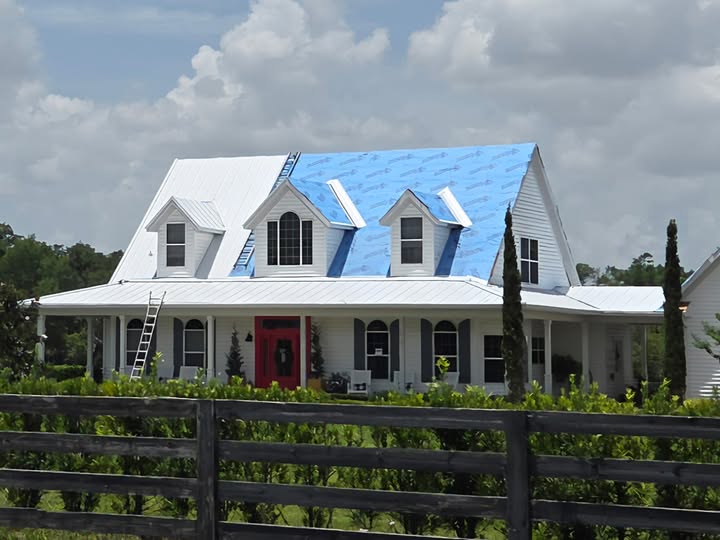I need a new roof but how do I choose?
Living in Florida comes with lots of perks including sunshine, palm trees, and beautiful coastlines. But if you’re a homeowner in the Sunshine State, you’re also aware that tropical storms and hurricanes are the flip side of those perks. When it’s time to replace or repair your roof, it’s not just a matter of picking the cheapest estimate or the first contractor you find. In Florida, your roof is your home’s first defense against extreme weather, and you owe it to yourself and your home to do some additional research.
At Educational Services & Consulting (ESC), we’ve helped thousands of professionals enter and thrive in the insurance and construction industries, and we’ve seen firsthand the devastation that comes from improperly installed roofs. That’s why we’re passionate about educating consumers in addition to training the next generation of accredited insurance adjusters.

Here’s a short list of what you should do to make an informed, confident decision when you need roof repairs or a new roof.
1. Florida’s Unique Climate Demands Hurricane-Strength Roofing
Your roof isn’t just protecting your home from rain and sun. In Florida, it must stand up to hurricane-force winds, heavy downpours, and flying debris. Choosing a roofing system rated for hurricane resistance is essential.
You’ll want to look for:
• Shingles rated for high-wind resistance (up to 130+ mph)
• Roofing systems tested to Miami-Dade or Florida Building Code (FBC) standards
• Roofers who use hurricane-rated fasteners and techniques
Florida’s building codes have improved drastically since Hurricane Andrew in 1992. Today, having a roof up to code means using specific materials and installation methods to improve roof durability and storm resistance. But not every contractor will follow them to the letter, especially if they’re not local or familiar with state regulations.
Pro tip: Always ask your roofing company how their installations meet or exceed Florida Building Code requirements for hurricane protection. If the answer seems off, dig a little deeper.
2. Choose a Roofing Contractor Familiar with Florida Weather
While national companies or out-of-town roofers may offer flashy discounts, they often lack a true understanding of Florida’s weather patterns and permitting processes. Choosing a local, experienced roofing company ensures:
• Compliance with local and state regulations
• Familiarity with hurricane-season scheduling
• Understanding of heat, humidity, and salt air corrosion effects
Roofers who regularly work in Florida know how to properly ventilate attics, prevent moisture buildup, and install materials that can handle harsh UV exposure and wind uplift.
3. Verify the Company is Licensed and Insured
This should be a non-negotiable. Roofing in Florida is considered a regulated construction trade, and anyone who installs or repairs roofs must hold a valid Florida Certified Roofing Contractor license (CCC license). This ensures:
• They’ve passed required exams
• They meet continuing education requirements
• They carry workers’ compensation and liability insurance
Why is this important? Because if something goes wrong, whether it’s a workplace injury or a faulty installation, you could be on the hook if your contractor isn’t licensed and insured.
To check a license in Florida, visit https://www.myfloridalicense.com and search their name or business.
4. Do Your Homework: Google Reviews & References
Before signing anything, it’s worth taking the time to do a quick online search. Look at the company’s Google Reviews, Facebook page, or local directories like Yelp or Angie’s List.
Pay attention to:
• Comments about reliability and communication
• How the company handles customer concerns or complaints
• Whether the reviews mention storm damage repairs or hurricane readiness
You can also ask the roofing company directly for recent references. A reputable company should be happy to connect you with satisfied customers nearby.
5. Understand the Contract and Warranty
Don’t feel pressured to sign a contract on the spot. Take the time to read through:
• Detailed scope of work (what’s being done, what’s not)
• Estimated completion time
• Payment terms
• Material and labor warranties
Many hurricane-rated roofing materials come with enhanced warranties, but they’re only valid if installed by certified contractors using approved techniques. Make sure this is clearly stated in writing.
6. Insurance Claims? Work With a Trusted Consultant
If your roof was damaged by a storm, you may be filing a claim through your homeowners’ insurance. In these cases, it’s often helpful to work with an accredited claims adjuster who is familiar with insurance claims and Florida’s insurance landscape.
This is where ESC-trained accredited claims adjusters knowledge pays off. We’ve educated thousands of students on how to navigate licensing, regulations, and ethical standards in the insurance field. That means you’re more likely to get fair estimates, accurate assessments, and quality work when working with those who understand both the roofing and insurance sides.
Replacing your roof is a major investment, and in Florida, it’s also a critical safety decision. Choosing a company that understands hurricane protection, Florida’s unique weather, and insurance compliance is the best way to protect your home and your family.
Take your time, do your research, and never be afraid to ask tough questions.
If you’re looking for business growth support as a roofing contractor or service provider in Florida, Educational Services & Consulting now offers virtual and in-person business consulting appointments to help companies like yours grow, stay compliant, and thrive. Learn more at https://escconnected.com/business-growth-consulting.
For more information on our 6-20 Accredited Claims Adjuster designation program visit https://escconnected.com/accredited-claims-adjuster/ or call us at 1-800-309-2549.
